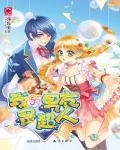Chapter 199 Gold Reserves and Currency Reform
As is well known to later generations, Japan's mineral resources are extremely scarce and difficult to mine, making it a resource-weak country.
Historically, Japan possessed vast reserves of gold, silver, and coal. However, due to its small size, the mines, while high quality, were scarce and, once mined, were gone. Only after entering modern industrial society did Japan's mineral resources become scarce.
For example, the Sado Gold Mine, the Hongomai Mine, and the Iwami Silver Mine, which have been closed in modern times, once accounted for 20% to 30% of the world's total mining output at their peak.
The Hishikari Mine is the only gold mine still being worked in modern Japan. Because Kyushu Island was not part of the ruling elite of Japan and even historically established a separate nation, opposing Japan, exploration of the Hishikari Mine began only in the 18th century, leaving Japan unaware of the vast gold mine.
The Hishikari gold mine has an ore grade of 40 grams per ton. As we all know, a gold ore with a grade of 2 grams per ton is considered valuable for mining. The Hishikari gold mine has an incredibly high grade, and its gold reserves are as high as 260 tons.
Today, the Hishikari Gold Mine is not only the only gold mine still mined in Japan, but also a famous tourist attraction.
Rich people love to visit these precious metal and gemstone mines, then spend money to buy a lot of raw materials from the place of origin and ask designers to customize them. Zhu Biao is no exception.
So after Zhu Biao was reincarnated into the late Yuan Dynasty and early Ming Dynasty without drinking Meng Po soup, he had already set his sights on Jiuzhou.
Later generations of the Japanese Empire have always claimed that their emperor is eternal and the incarnation of the gods, and has never been a vassal of any country. The artifacts that have been unearthed, such as the gold seal, that prove that Japan accepted the canonization of vassal states, were all made by small, barbaric countries on Kyushu Island and have nothing to do with Japan.
Doesn’t this prove that Kyushu has been a vassal state of the Chinese dynasty since ancient times and has nothing to do with the emperor of Japan?
Yeah.
Then the Ming Dynasty could regain Kyushu as a vassal state "since ancient times". The nobles of Kyushu must be very happy.
The nobles of Kyushu were indeed very happy. They were all hoisted on flagpoles.
At this time, Kyushu was to Japan what the Western Regions were to the Chinese dynasty, in an independent and autonomous state.
Especially after the Muromachi period, even the central region of Japan was not unified, and Kyushu was basically a separate country. It was not until the reign of Toyotomi Hideyoshi that the "Kyushu Conquest" began, bringing Kyushu under the unified management of the Japanese shogunate.
Because Kyushu was closest to China, exchanges with both China and Goryeo were very frequent. During the heyday of the Tang Dynasty, envoys to the Tang Dynasty basically set out from the ports of Kyushu .
But trading is not as good as robbery. Since the Kamakura period (1185-1333), western Kyushu has been the base camp of Japanese pirates.
The nobles in the eastern part of Honshu Island were closer to the shogunate and were considered to be members of the shogunate faction, and they could barely operate their territories normally; the samurai nobles in the west were basically Japanese pirates, such as the famous Matsuura Seven Clans.
So in the original history, the Japanese pirates did not rise because the Ming Dynasty closed the tribute trade with Japan. Instead, the Japanese pirates were the reason why the Ming Dynasty closed the tribute trade with Japan.
The Ming Dynasty wanted to wipe out the Japanese pirates, and these military nobles who had been pirates for generations suffered and were driven out to sea one by one.
Even the Yuan Dynasty failed to defeat them. They were very arrogant and believed that the Japanese pirates had the help of divine wind and would never be defeated by the Central Plains dynasty. That was why the Japanese pirates acted recklessly.
Now that the Ming Dynasty has actually arrived, the Kamikaze refuses to appear in response to their prayers, and this group of Japanese pirate nobles is in big trouble.
After Liao Yongzhong expelled these Japanese pirate nobles, he not only moved more Ming troops to establish a naval base and cultivate the Ming navy, but also moved many civilians.
It is worth mentioning that the people who first migrated to Kyushu were all sent by Chang Wei.
Jiangsu and Zhejiang are vast and sparsely populated, so it is impossible to fill up Yunnan completely. Moreover, even if they go to other places in the Ming Dynasty, their intricate clan relationships can still allow them to establish powerful rule in the local area.
After Chang Wei discovered that the relationship between the powerful people in Jiangsu and Zhejiang was complicated and tangled, he heard that Kyushu Island had fertile land and a lot of land was vacant after the Japanese pirates were expelled, so he stuffed people onto the ship and asked them to go to Kyushu to reclaim wasteland.
The people of Jiangsu and Zhejiang complained bitterly, and countless people cursed Chang Wei. Later, Chang Wei's name appeared in many Ming Dynasty vernacular novels, and she was generally portrayed as a shameless, vicious, and lascivious woman who had many men.
In contrast, Chang Wei was highly praised in official history, and common people built temples for him, and the incense continued to be worshipped there.
Some historians are unconventional and believe that the official history was probably deleted and revised by later generations in order to cover up the truth. Although there is no evidence in the vernacular novels and unofficial histories, they must be the truth.
This later formed the "Changwei School", which supported countless researchers and popular science personnel. Although it was criticized by countless people, these bizarre things were obviously very profitable, so they continued to exist despite repeated bans.
Chang Wei now knew how she would be treated in the future, because she had already seen stories circulating among the people that slandered her.
Even if the Ming government banned it, these things were circulated privately, and she wouldn't have known about them unless she happened to come across them.
Chang Wei cried for this, and the next day, she was still the one who sent the local tyrants on the luxurious ship to Kyushu Island.
Zhu Biao was very pleased after reading Chang Wei's letter.
To nourish Japan, this is the wish of so many people. These people on board are so lucky.
Zhu Biao was pleased and asked people to make a play and write a script with Chang Wei as the protagonist.
Isn't it just a comparison of unofficial histories? Then let's see whose story is more widely circulated in later generations.
Zhu Biao knew that the trend of entertainment to death would prevail in later generations, and that this group of people would be slandered into all kinds of strange images in the future, just like Chang Wei.
So, it is better to write your own unofficial history.
For example, it would be nice to stage a fairy play, in which Chang Wei, as a fairy worshipped by the people, sees himself being slandered by the descendants of the people he once saved, and then those people all suffer retribution.
Zhu Biao could not control the "research on historical truth" of future generations, but he could at least curse them from afar, blocking all their attempts to label themselves as "orthodox history", and making this group of self-proclaimed unconventional historical researchers forever fixed in the category of "folk scientists". Once they left their small circle, they would be abused and ridiculed.
After the new opera spread to Jiangsu and Zhejiang, people competed to sing it.
The literati who recognized Chang Wei and were suppressed by orthodox ideas also became brave and used poems and articles to clear Chang Wei's name.
After learning about this, Ye Zheng, who had never cared about poetry and articles, specially wrote an article and gave it to Chang Wei.
This article was later included in high school textbooks and college entrance examination syllabus. The entire text was required to be copied and memorized, and it was tested very frequently, so students liked it very much.
That’s all for later.
Now, after Chang Wei sent people to Jiuzhou, the officials in Fujian and Guangdong, who were worried about the resurgence of powerful forces in peacetime, thought this was a great idea, so they also sent people to Jiuzhou. Jiuzhou quickly prospered.
The people of the Ming Dynasty were all very hardworking.
Although they were full of curses, when they arrived in Kyushu, they found that the land was fertile, the rainfall was sufficient, and it was on the shipping route to Ming Dynasty and Goryeo. They were immediately satisfied and started to cultivate land, build houses and build cities.
The people of the Ming Dynasty, even the powerful ones, were delighted to see the fertile land, and then they would "take things as they came" and start a happy farming life.
After quarrels and confrontations with the Ming court, they arrived at Kyushu Island. After everything settled down, their relationship with the Ming army immediately warmed up, and the military, civilians, officials and people became one family. This is cause for celebration.
With the help of the great working people of the Ming Dynasty, Liao Yongzhong's secret mining activities went very smoothly.
In order to move the mine to Daming as soon as possible, Zhu Biao ordered Liao Yongzhong to use gunpowder to mine and then quickly transport the ore back.
In other words, he didn't have Liao Yongzhong smelting the ore on Kyushu Island, but instead shipped it back to Jeonra Island first. Once the ore was mostly mined, Zhu Biao would build a smelting plant on Jeonra Island to prevent the news from leaking out.
There is very little arable land on Jeonra Island, and the ore is piled up in the saline-alkali land, which will not affect them at all.
If Jeonra Island becomes uninhabitable in the future due to metal smelting, Ming Dynasty can also relocate the Jeonra Islanders to Tsushima Island or even Goryeo.
Gold reserves were more important than the environmental pollution caused by gold smelting. Under the current circumstances, Zhu Biao could only trade pollution for development.
I hope future generations will forgive me.
If I don't forgive you, will my descendants pry open my coffin and spit on me? That will get you jailed for life.
There was no smelting, only mining of rocks from the mountains. No one would have thought that the Ming army was digging for gold.
Even though there were rumors outside, they all thought that the Ming Dynasty was mining soil and stones in Jiuzhou to build imperial palaces or tombs. At most, some people wondered whether these stones were related to the Ming Dynasty's gunpowder production.
Traditional black powder production requires sulfur, and Japan, with its numerous volcanoes, is rich in sulfur deposits. While the Japanese high command had long known the formula for gunpowder , they paid little attention to firearms. It wasn't until the mid-to-late Ming Dynasty, during the Warring States Period, that Japan began learning firearms production from the Portuguese.
Even though they were frightened by the Ming Dynasty's artillery, the corruption and conservative thinking of the top leaders made them still unwilling to accept firearms.
So when a wise Japanese minister suggested that the Ming Dynasty might be digging for gunpowder raw materials on Kyushu Island, they completely forgot about it.
Even if there were people among their senior management who wanted to make their own gunpowder, they would not take it seriously.
Because the formula for gunpowder in their minds was still "sulfur, saltpeter and charcoal", the Ming Dynasty might have dug sulfur, which was everywhere in Japan and was worthless. Only the Ming people would come all the way here to dig stones and regard them as treasures.
When they unify the world and start making firearms, they can just dig it up on the spot. There is really no need to worry about this.
"Actually, I was the one who leaked the news that the Ming Dynasty was digging up gunpowder raw materials," Zhu Biao said to his father. "It's something very precious to us, but not valued by the Japanese. That's why they both believe it and despise it, and won't stop us."
Zhu Yuanzhang: "Oh my god, gold, gold, gold..."
Zhu Yuanzhang didn't listen to what Zhu Biao said at all, his head was filled with gold.
Zhu Biao was so angry that he gave his father a light uppercut to wake him up from the gold.
Zhu Yuanzhang held his face with his hands and shouted, "Gold! Lots of gold!"
Zhu Biao turned to the cheerful Li Shanchang and the others and said, "My father has gone mad. Call a doctor and give him a few injections... Ah! "
Zhu Yuanzhang pulled Zhu Biao and danced with joy: "Biao'er! Gold!"
Zhu Biao said helplessly: "Yes, yes, gold, gold. There is a gold and silver mine on the Japanese island that they have not yet discovered. Once we have mined most of it here, we will go there to mine. With these gold and silver reserves, we can reform the currency."
Zhu Yuanzhang released his hand from the dancing Zhu Biaohou and asked in confusion, "Reform the currency? Reform what currency?"
Zhu Biao roared: "Dad! I just said so much, didn't you hear a single word I said!"
Zhu Yuanzhang said seriously: "I heard that we have hundreds of thousands of kilograms of gold!"
Zhu Biao: “…”
Li Shanchang, Liu Ji and others quickly held down Zhu Biao, who was so angry that he wanted to leave.
"Biao'er, forget it, you know your father is like this."
"My Lord...My Lord also said that whenever your father's mind is occupied by one thing, he can't think about anything else. You should be used to it by now."
"Say it again, say it again. Don't lose heart."
"Biao'er, that's your father. You have to be patient and filial."
Zhu Yuanzhang said confidently: "Yes! I am your father! What's wrong with you saying it again? You must be filial!"
Everyone: “…”
They let go.
"Biao'er, go ahead and beat up your dad, and we'll just pretend we didn't see anything."
Zhu Biao was furious: "How can I beat him?"
Zhu Yuanzhang laughed loudly, which made Zhu Biao so angry that he jumped to his feet. He wished he could shoot biubiu rays from his hands to turn his father into a child, and then press the child's father on his knees and spank him.
I'm so angry!
Zhu Yuanzhang put his hand on Zhu Biao's shoulder and winked, "Alright, alright, your father is awake now. Tell us what the currency reform is all about."
Zhu Biao rolled his eyes, drank a glass of water to moisten his throat, and said it again.
Currency reform, of course, is the reform from metal currency to paper currency.
In fact, Zhu Biao had no original intention to reform the currency.
Everyone knows that when the commodity economy develops, the amount of metal currency will definitely not keep up with the amount of commodity circulation, which will cause deflation.
Therefore, in order to develop a commodity economy, it is necessary to introduce a new currency.
The earliest paper money was anchored by gold and silver.
The paper currency of Kublai Khan of the Yuan Dynasty was originally anchored by gold and silver and could be exchanged for gold and silver.
But such paper money is only a transitional form.
The reason for the emergence of paper money is that the minting volume of metal currency cannot keep up with the speed of commodity circulation. Therefore, paper money anchored by precious metals, although more convenient to carry, actually has the same disadvantages as metal currency and cannot solve the problems brought by precious metal currency.
After that, paper money will inevitably be untied from precious metals.
But what happens after the unbinding? Energy-pegged currencies are merely a transitional process. Ultimately, the currency will be anchored to national credit and issued based on strict economic data.
This requires strong state control and computing power, as well as a sufficiently shrewd ruling class.
Not only has the history of international currency fallen into all the possible pitfalls, but in fact, the Yuan Dynasty's history of issuing paper money, which lasted less than a hundred years, has already encountered almost all the pitfalls that the development of international currency will encounter.
In other words, the history of international currency is actually the currency history of the Yuan Dynasty, except that it lacks the oil anchor and military anchor.
The founding emperors and ministers of the Ming Dynasty had already thoroughly studied the monetary history of the Yuan Dynasty. After Zhu Biao explained it to them systematically, they understood it immediately.
Zhu Biao said: "It is still early to transition to the final form of credit currency, but now that we have sufficient gold and silver reserves, we can first use Kublai Khan's original paper currency form, that is, using gold and silver to anchor paper currency."
Zhu Yuanzhang asked in confusion, "Biao'er, I remember you said when we were little that even if we had enough gold and silver, it would be too early to issue paper money given the current level of social development. Why have you changed your mind now?"
Zhu Biao smiled mysteriously and said, "I used to distrust the Hongwu Emperor, but now I believe that Your Majesty is a wise ruler who can control the malpractices of issuing paper money."
Zhu Yuanzhang was happy: "Of course!"
The others looked at Zhu Biao's mysterious smile, thinking about something.






